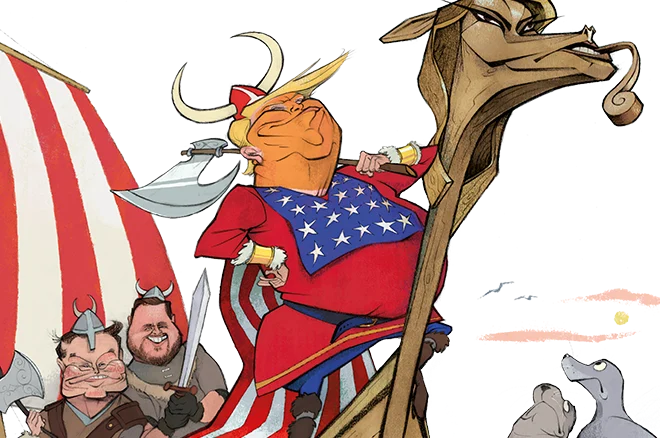“Censorship is not how we do things in Western civilization”. So said Congressman Scott Fitzgerald (R-WI) of the United Kingdom’s new Online Safety Act (OSA). Its effects on free expression are “dangerous and needs to be addressed,” possibly by means of an international “united front”.
The Congressman was fresh from meetings with British and Irish lawmakers and US tech firms, held as part of a House Judiciary Committee fact-finding mission to investigate the impact of the OSA and the European Union’s new Digital Marketing Act on American businesses. The main event was a one-on-one between Committee chair Jim Jordan (R-OH) and Peter Kyle, the United Kingdom’s Secretary of State for Science, Innovation and Technology.
The OSA, which came into force last week, requires internet platforms to put new measures in place to prevent under-18s from accessing violent or pornographic content. Supporters of the Act say this is essential to protect children; opponents that the regulations are at best ham-handed, at worst part of an attempt to quash online discussion of issues like illegal immigration.
The rollout has not reassured critics. When the Act came into effect, British X users logged onto the website to find that its new filter had blocked footage of a protest in Epping, England against illegal migrants being housed in a nearby hotel. Also hidden was a speech made by a member of the British House of Commons on the Rotherham rape gangs scandal. Footage of the wars in Gaza and Ukraine fell foul of the filter as well.
Significantly, the OSA applies to any site operating in the UK. American companies that fail to meet its provisions could face fines of 10% of “qualified worldwide revenue”. This has caused consternation in Silicon Valley, and not just among its MAGA-aligned faction. Congressman Kevin Kiley (R-CA), another member of the delegation, says that tech giants like Apple and Meta are “all very frustrated” at the Act, and claim that they’re being “overregulated”.
It speaks to a perennial complaint, by no means confined to the Trumpist right, that European governments use regulations like these as a means to cream off some of the proceeds of Silicon Valley for themselves. These laws represent a “direct transfer of wealth” from Americans to Europeans, said Rep. Fitzgerald. “America innovates; Europe regulates.”
This isn’t just a commercial spat, though. We’re often told that MAGA is a politics of expediency and self-interest: “America First”. What tends to be missed is how prominently a general concern for the fate of the West often features. That was certainly the tenor of Rep. Kiley’s criticism of the OSA, who was “very concerned” by its impact on free expression in the UK. “Free speech is a hallmark on Western civilization”. The USA should be “aligned with European allies” on free expression, Rep. Fitzgerald added – Europe was “a little off track” in this regard.
It’s not the first intervention of this kind. Earlier this year at the Munich Conference, Vice President Vance criticized European governments over limits placed on speech. During the Obama years – and before – criticisms of the “human rights abuses” of various regimes were a routine event. A MAGA equivalent may now be taking shape.
Nor would they be without local allies. The Democratic lawmakers on the delegation, including Eric Swalwell, recently tilted with Nigel Farage, leader of the populist Reform UK party, in a meeting held on Tuesday to discuss the OSA. Farage took umbrage with Congressman Jamie Raskin’s (D-MD) criticisms of Trump, calling him “pig-headed”.
Where does the President fit into all this? So far he has been fairly sanguine about the OSA (“I cannot imagine him [British Prime Minister Keir Starmer] censoring Truth Social … I only say good things about him and his country”) and is less inclined to comment on the internal affairs of other Western countries. That might be changing, though: after his meeting with Keir Starmer in Scotland on Monday, the President beseeched the Prime Minister to lift the ban on oil and gas exploration in the North Sea. Would Fitzgerald and Kiley be bringing their concerns to the White House? “Yes”.


























Leave a Reply